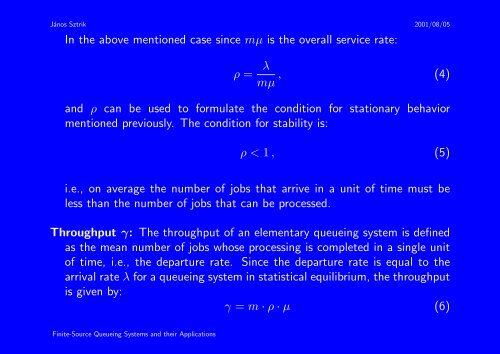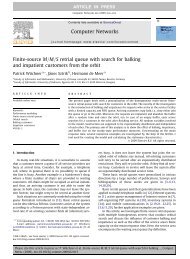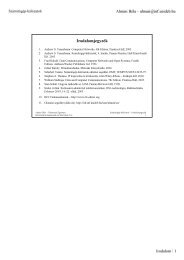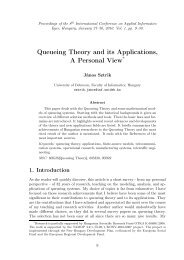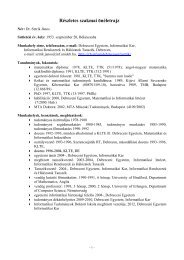Finite-Source Queueing Systems and their Applications
Finite-Source Queueing Systems and their Applications
Finite-Source Queueing Systems and their Applications
You also want an ePaper? Increase the reach of your titles
YUMPU automatically turns print PDFs into web optimized ePapers that Google loves.
János Sztrik 2001/08/05<br />
In the above mentioned case since mµ is the overall service rate:<br />
ρ = λ<br />
mµ<br />
, (4)<br />
<strong>and</strong> ρ can be used to formulate the condition for stationary behavior<br />
mentioned previously. The condition for stability is:<br />
ρ < 1 , (5)<br />
i.e., on average the number of jobs that arrive in a unit of time must be<br />
less than the number of jobs that can be processed.<br />
Throughput γ: The throughput of an elementary queueing system is defined<br />
as the mean number of jobs whose processing is completed in a single unit<br />
of time, i.e., the departure rate. Since the departure rate is equal to the<br />
arrival rate λ for a queueing system in statistical equilibrium, the throughput<br />
is given by:<br />
γ = m · ρ · µ (6)<br />
<strong>Finite</strong>-<strong>Source</strong> <strong>Queueing</strong> <strong>Systems</strong> <strong>and</strong> <strong>their</strong> <strong>Applications</strong>


